Making industrial processing tomato operations more sustainable with the use of new packaging materials: Parma's AOP CIO Association has obtained the approval of its TomatER project from the Emilia-Romagna regional authorities. This project is dedicated to the search for more eco-sustainable solutions that are compatible with a circular economy.
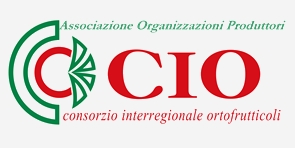 The AOP CIO (Association of Producers' Organizations), based in Parma, which includes the AINPO, the Consorzio Casalasco del Pomodoro and the Consorzio Agrario di Cremona, presented the research project TomatER to the Emilia-Romagna regional authorities. The aim of the project is to improve the environmental sustainability of the processing tomato sector through the use of new packaging materials.
The AOP CIO (Association of Producers' Organizations), based in Parma, which includes the AINPO, the Consorzio Casalasco del Pomodoro and the Consorzio Agrario di Cremona, presented the research project TomatER to the Emilia-Romagna regional authorities. The aim of the project is to improve the environmental sustainability of the processing tomato sector through the use of new packaging materials.
 TomatER will be 70% financed by the Emilia Romagna Region within the framework of Measure 16.2.01 of the Rural Development Program 2014-2020. The beneficiary will be the CIO (Interregional Fruit and Vegetable Consortium) and several other structures that collaborate in the project's activities, such as VSafe Srl, a spin-off of the Catholic University of the Sacred Heart of Piacenza, Cipack (Interdepartmental Center of Packaging of the University of Parma), Open Fields Srl and AZ Gomma (two plant-nurseries), and some farms located in Emilia-Romagna.
TomatER will be 70% financed by the Emilia Romagna Region within the framework of Measure 16.2.01 of the Rural Development Program 2014-2020. The beneficiary will be the CIO (Interregional Fruit and Vegetable Consortium) and several other structures that collaborate in the project's activities, such as VSafe Srl, a spin-off of the Catholic University of the Sacred Heart of Piacenza, Cipack (Interdepartmental Center of Packaging of the University of Parma), Open Fields Srl and AZ Gomma (two plant-nurseries), and some farms located in Emilia-Romagna.
Currently, the processing tomato industry is the most important processed fruit and vegetable sector in Italy. With a turnover of EUR 3.7 billion in 2021, including about 2 billion generated by exports, this sector plays a strategic role in the national economy by providing about 10,000 permanent jobs and more than 25,000 seasonal jobs, to which must be added the workforce engaged in various related industrial sectors (data provided by the Anicav – National Association of Industrial Vegetable Canneries).
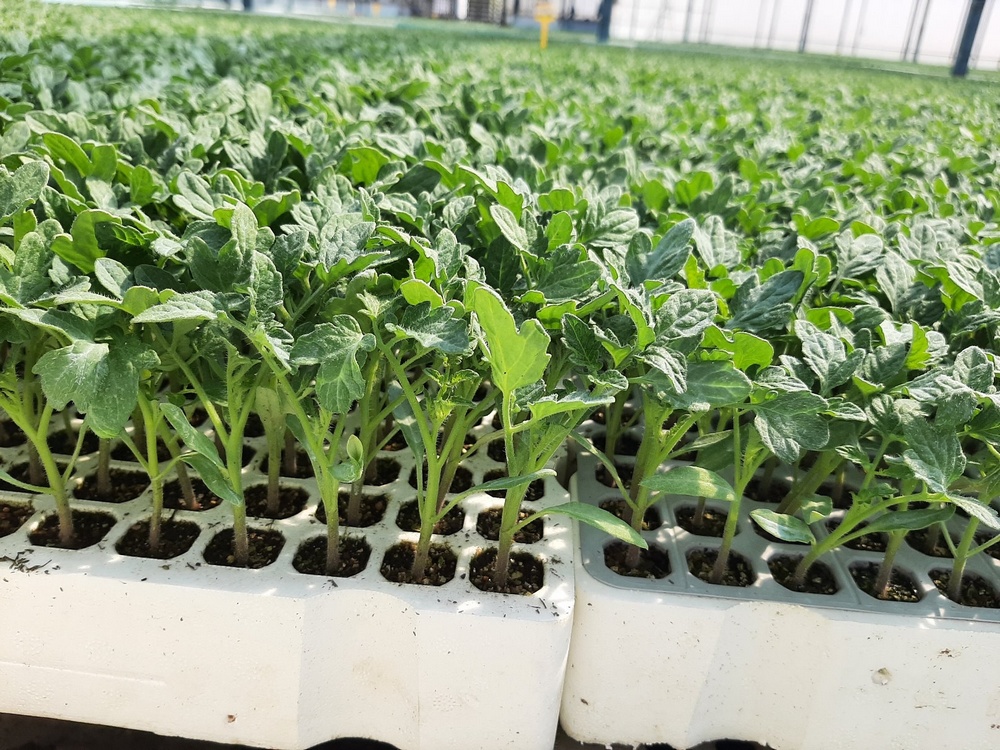 During the production phase of seedlings intended for open-field transplanting, which is carried out in specialized nurseries, the sowing, cultivation and transport are carried out in boxes, called "trays", made of polystyrene. Currently, about 5 million units are used for each crop season in northern Italy. Polystyrene is an amorphous thermoplastic material that has many interesting characteristics, but also has many disadvantages in the area of tomato cultivation. Indeed, polystyrene trays cannot be reused because they cannot be sterilized. The inability to sterilize them, if reused, poses the risk of the seed trays themselves becoming a vector for pathogens affecting the seedlings. Recycling of polystyrene trays is difficult due to the high volume-to-weight ratio.
During the production phase of seedlings intended for open-field transplanting, which is carried out in specialized nurseries, the sowing, cultivation and transport are carried out in boxes, called "trays", made of polystyrene. Currently, about 5 million units are used for each crop season in northern Italy. Polystyrene is an amorphous thermoplastic material that has many interesting characteristics, but also has many disadvantages in the area of tomato cultivation. Indeed, polystyrene trays cannot be reused because they cannot be sterilized. The inability to sterilize them, if reused, poses the risk of the seed trays themselves becoming a vector for pathogens affecting the seedlings. Recycling of polystyrene trays is difficult due to the high volume-to-weight ratio.
These critical issues prompted the AOP CIO to seek more eco-sustainable solutions that would be compatible with a circular economy model, through the identification of reusable (non-disposable) and recyclable materials.
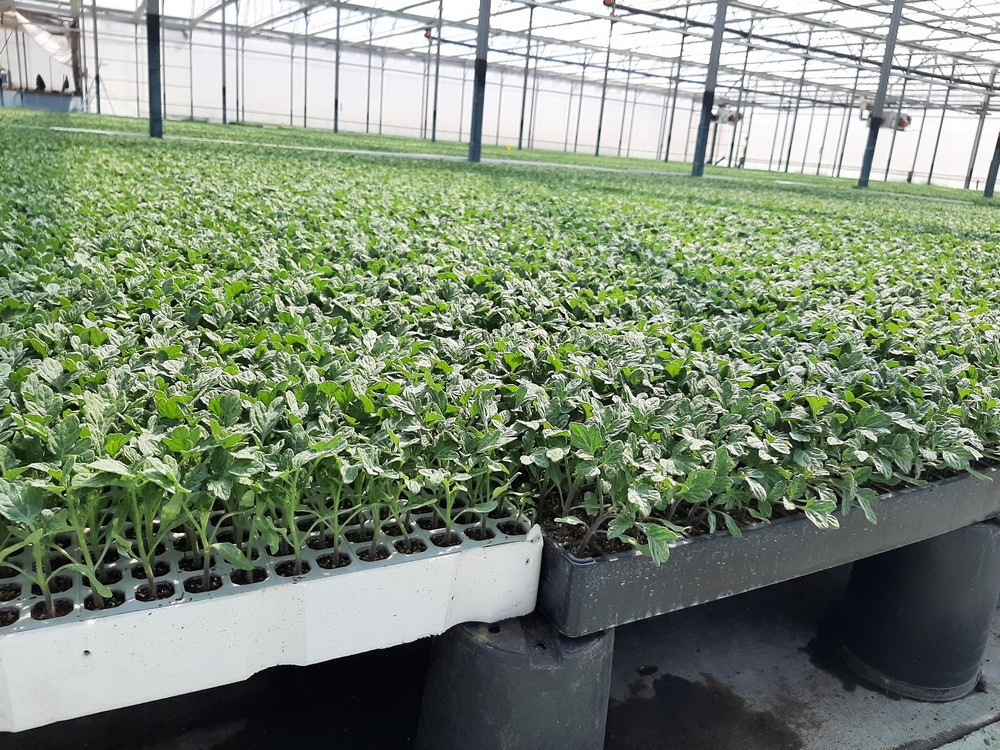 The general objective of the TomatER project is to improve the environmental sustainability of the tomato industry through the use of new seed trays adapted to mechanical transplanting, made of alternative plastic materials other than classic polystyrene.
The general objective of the TomatER project is to improve the environmental sustainability of the tomato industry through the use of new seed trays adapted to mechanical transplanting, made of alternative plastic materials other than classic polystyrene.
Two types of trays will be tested. The first type, still made of polystyrene (mono-material trays), will be entirely reusable and totally recyclable. The second type (mixed trays) is made of two materials, a polypropylene base and a thermoformed rPET (recycled polyethylene terephthalate) coating. The polypropylene base, which never comes into direct contact with the roots and leaves of the plants, can be reused for several cycles, while the thermoformed rPET is sent for recycling at the end of each vegetative cycle.
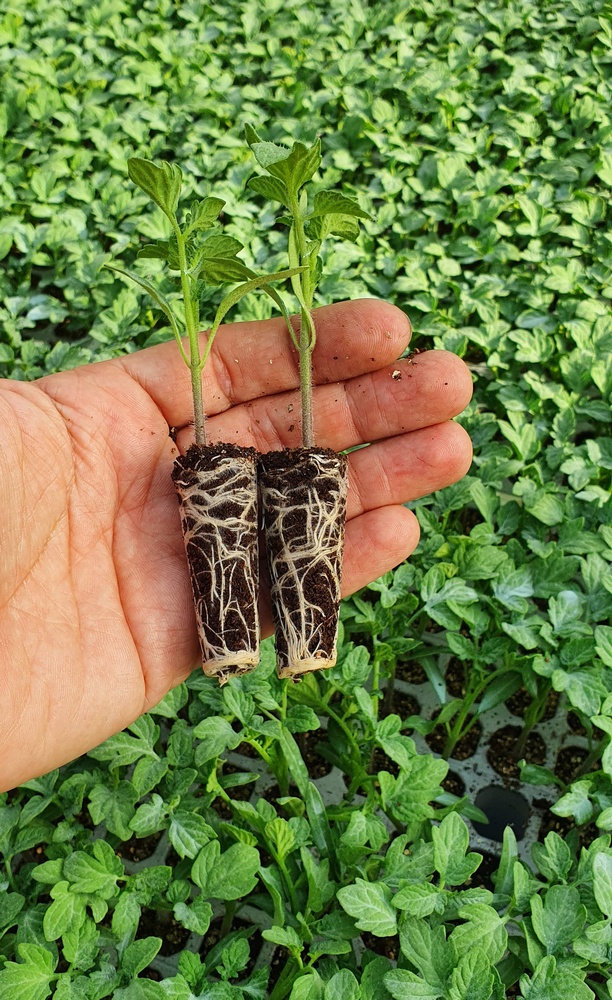 The advantage in terms of environmental impact of the new trays lies primarily in the possibility of reusing them.
The advantage in terms of environmental impact of the new trays lies primarily in the possibility of reusing them. 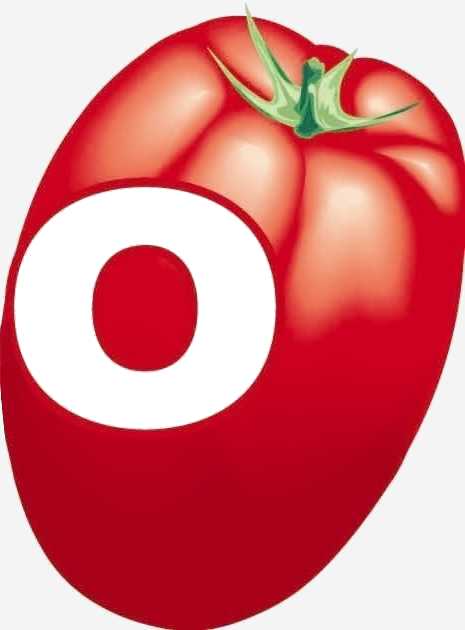 In the case of mono-material trays, each unit can undergo two cycles of use in the course of the same season and can be used for several years before being recycled to make new trays.
In the case of mono-material trays, each unit can undergo two cycles of use in the course of the same season and can be used for several years before being recycled to make new trays.  in the case of mixed trays, the upper part made of thermoformed rPET is used only once before being directed to recycling (rPET), while the lower part made of polypropylene, not having been in contact with the peat and the roots of the plants, can be recovered and reused in a second cycle the same year and then again for a few years.
in the case of mixed trays, the upper part made of thermoformed rPET is used only once before being directed to recycling (rPET), while the lower part made of polypropylene, not having been in contact with the peat and the roots of the plants, can be recovered and reused in a second cycle the same year and then again for a few years.
The aim of the experiment is to evaluate the cost/benefit ratio in economic and environmental terms of using these two types of seedling preparation trays, compared to traditional polystyrene trays, and to determine for how many years they can be reused.
Source: Ufficio stampa CIO





 The general objective of the TomatER project is to improve the environmental sustainability of the tomato industry through the use of new seed trays adapted to mechanical transplanting, made of alternative plastic materials other than classic polystyrene.
The general objective of the TomatER project is to improve the environmental sustainability of the tomato industry through the use of new seed trays adapted to mechanical transplanting, made of alternative plastic materials other than classic polystyrene.





























